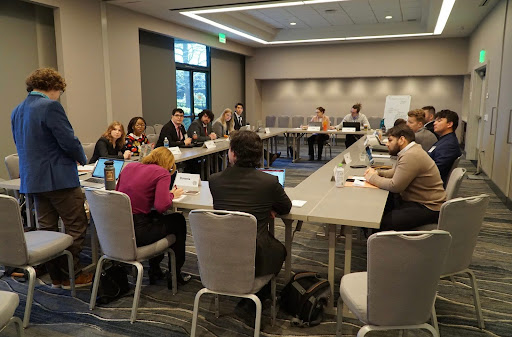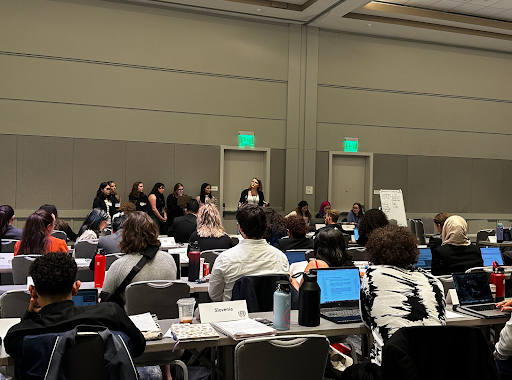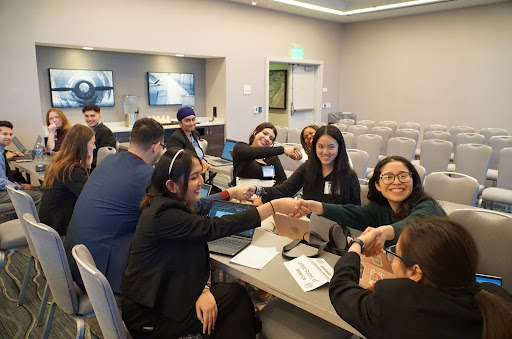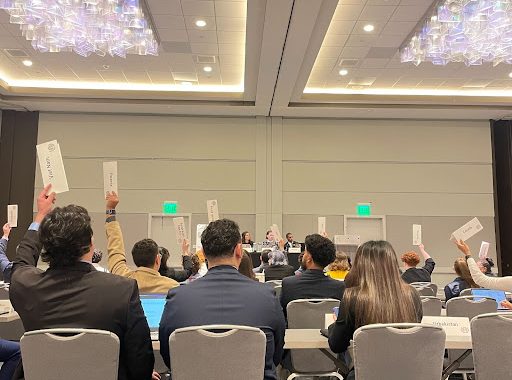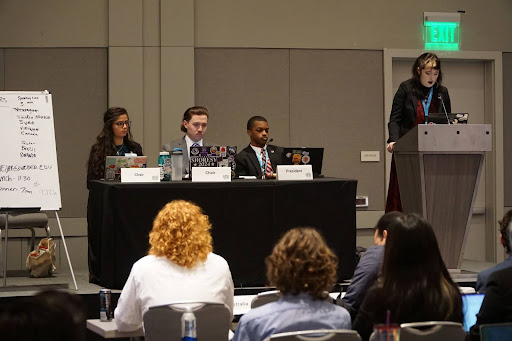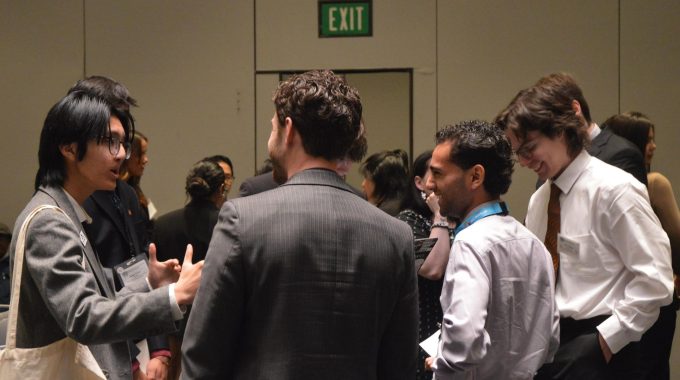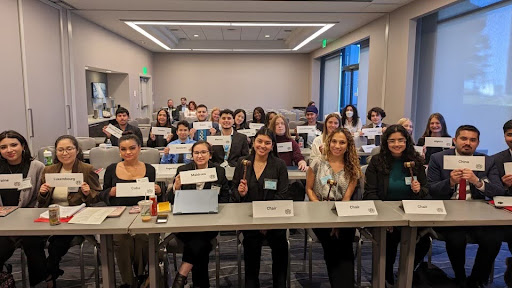Security Council Actions: Protecting Children and Women in Conflict Zones
After their lunch break, the Security Council finalized their working papers and motioned for resolutions concerning Cabo Delgado, Mozambique, and the safety and security violations against children in the ISIS-occupied region. The excitement in the room is palpable as delegates are close to ensuring the protection of children in Mozambique from the never-ending cycle of war, especially concerning child soldiers. As the paper is finalized and ready to be sent to D-corp, this resolution will be one of the first of the conference to be sent and finalized. The Security Council’s resolution is region and country-specific, but it sets an important precedent regarding terrorism worldwide. The council aims to protect refugees during times of war through “a training program for peacekeepers in the Cabo Delgado region to disarm and escort child soldiers from conflicts to other regions within Mozambique and rehabilitate them.” A total majority votes to move along to their second agenda item: protection of women and children in conflicts.
The Russian Federation leads with a strong speech indicating their full support of protecting women and children during times of conflict. They advocate for protection for women and children in conflict zones and set a precedent with other states within the council regarding the protection of women and girls in conflict. Mozambique is pleased to work on this second agenda item, directly related to the first motion passed today. They receive support from the United States and Ecuador on their statements. Both states recognize the importance of the first motion passed and the continuation of protecting at-risk groups during times of conflict. The Republic of Korea, represented by delegate Lilly Kiefer, a powerful and well-spoken delegate, staunchly supports protecting women’s rights. Delegates break apart for an unmoderated caucus. As of now, no resolutions have been drafted, and delegates spend the rest of their allotted time drafting a resolution.
Michaela Appiah
World Press Reporter
Weber State University

